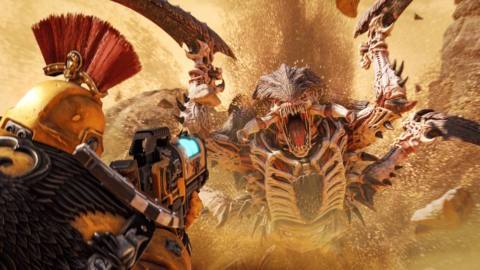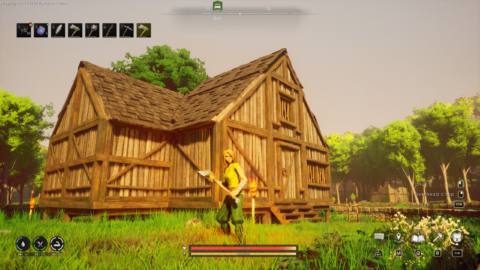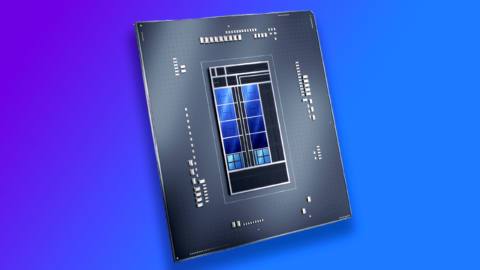Proponents of generative AI would often have you believe that such systems are all about making serious improvements to your productivity and work. But for owners of Arc graphics cards, Intel believes you should just have fun and mess around with it. To that end, it has released a beta version of AI Playground, a free and open-source application that lets you use your Alchemist GPU to generate and edit AI images and talk nonsense with a chatbot.
Intel first teased AI Playground at Computex, earlier this year, and now a public beta version of the app is available to download for Windows. You'll need an Arc graphics card with 8 GB or more of VRAM—it won't run on any other GPU, unfortunately.
The installation will pull a copy of Python off the Internet if you don't have it already installed. If you do have Python on your gaming PC and AI Playground crashes when you run it, it's probably a version conflict and the only option to resolve the problem, at the moment, is to remove all instances of Python you currently have.
AI Playground's main features are the text-to-image and image-to-image generative tools that use Stable Diffusion 1.5 as the primary model of choice. You can try that system without using Intel's app, of course, via Hugging Face's online generator but the idea behind AI Playground is that it's all run locally—slower than a dedicated server perhaps but certainly a lot more private and secure.
I gave it a go using an Arc A770, which has 16 GB of VRAM, and the first thing I noticed was the installation process is pretty long, as it needs to pull all the files and models it needs off various servers. If you have a slow net connection, be prepared to give some time to finish the whole process. Once done, you can fire up the app, wait a few seconds for it to initialise, and then you're free to mess about.
Well, not immediately. The moment I entered some text to generate an image, the app spat out a message saying I didn't have the right AI model installed. Another download (this one is a bit quicker than the others) and bingo! I had my first piece of generative AI art nonsense.
The result from just using 'an astronaut riding a horse' wasn't too bad but the real surprise was just how fast it was—less than four seconds to generate the 512 x 512 image. Interestingly, Intel's system automatically includes two negative prompts, bad hands and nfsw, so you won't be churning unsavoury images without being highly creative with the prompts.
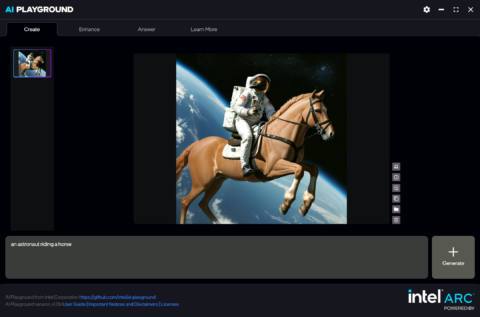
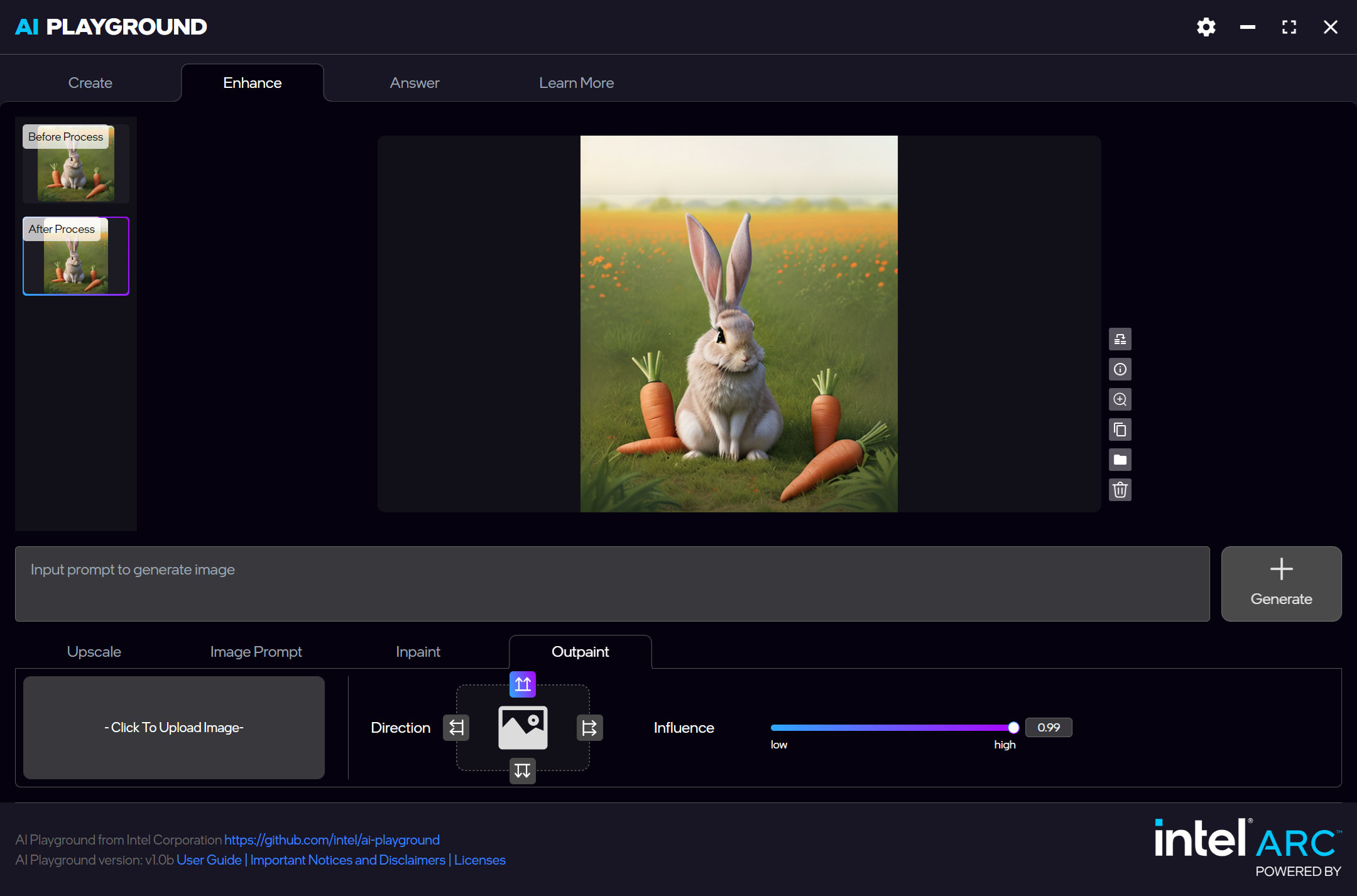
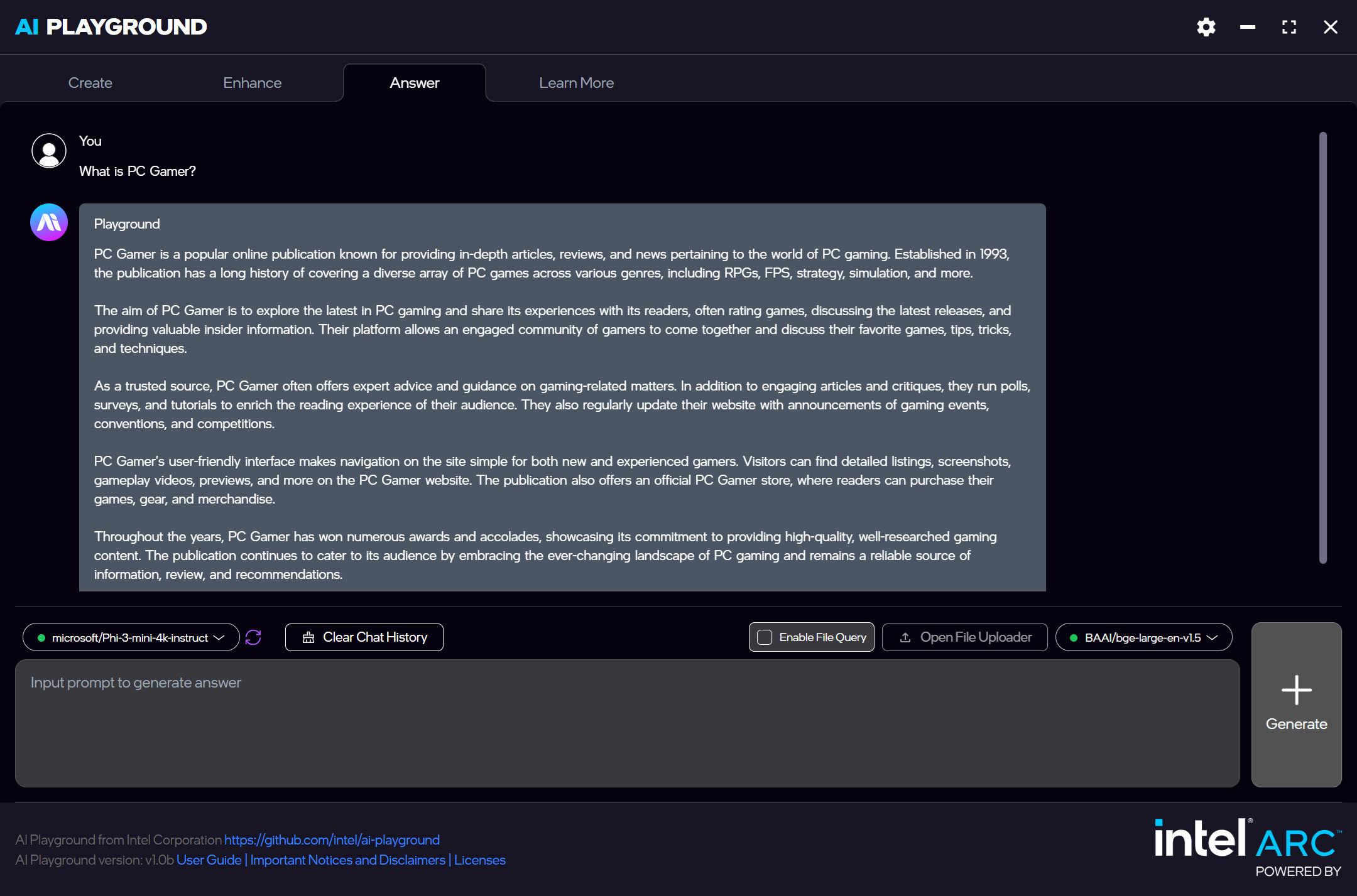
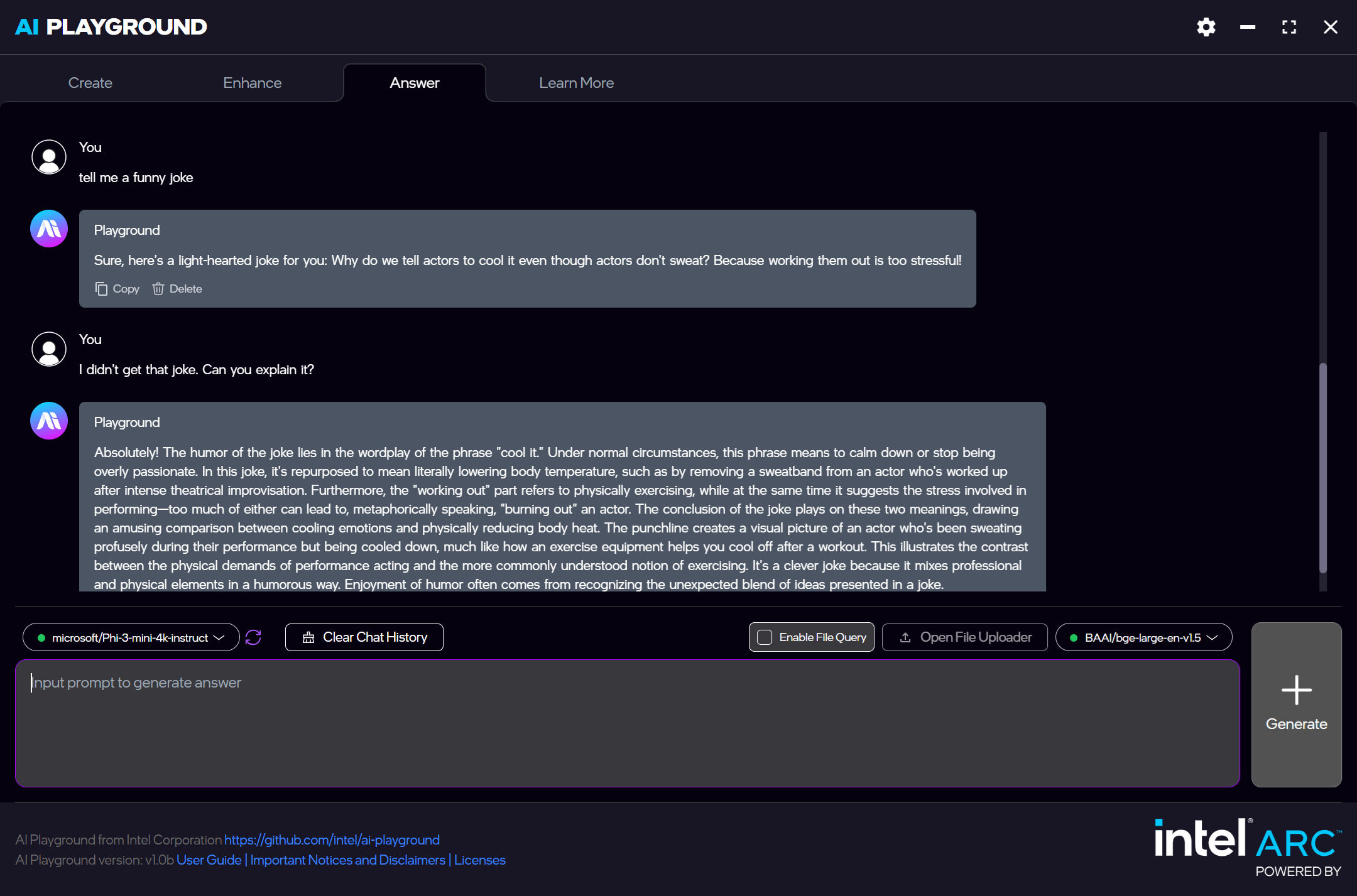
From here, you can pass your creation onto the image-to-image generator, which offers upscaling, inpainting, and outpainting to enhance what you've made (or any other picture, for that matter). Each system requires a further model to be downloaded, which got a tad annoying after a while—it would be much better to have these as options during the main, first installation procedure.
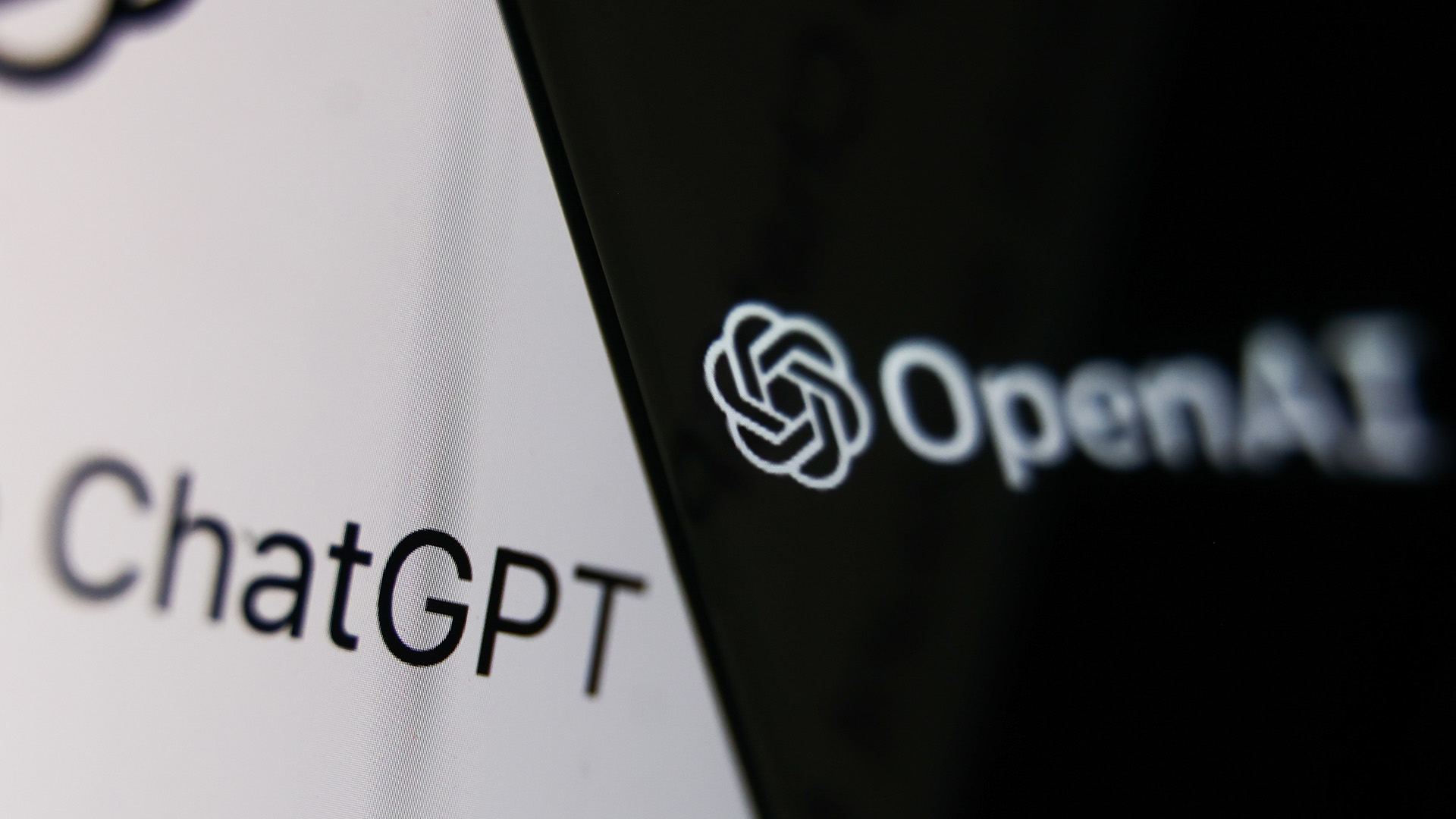
What is artificial general intelligence?: We dive into the lingo of AI and what the terms actually mean.
These tools are a little slower than the standard image generator but I was still impressed by how well the Arc A770 breezed through the tasks. Intel's Alchemist GPUs aren't the fastest in gaming but thanks to being packed to the hilt with matrix units, they're cracking little AI machines.
Lastly, there's the chatbot, which uses Microsoft's Phi 3 model to handle all the generative malarky. It's a little buggy and takes a couple of goes before it actually works and spits out a reply. I'm not especially interested in such systems—I can admire the technical wizardry behind them all, but using them doesn't do anything for me.
But the fact that this is all free, local, and fast (with the right Arc graphics card) makes Intel's AI Playground a nice little tool to mess around with for a while. For the right person, though, it could be useful and it's nice to give Intel a bit of praise for something. Beep bop, I am not a robot.




